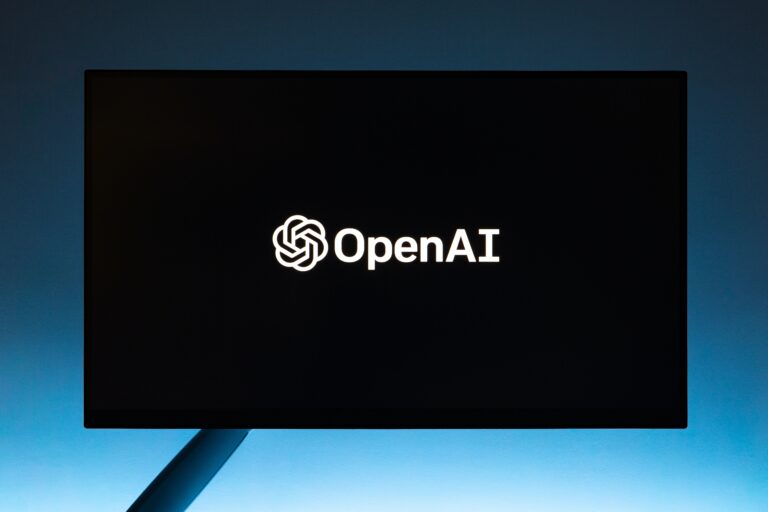ChatGPT: Why It’s Not a Threat to Google Search
ChatGPT Vs Google Search
ChatGPT: Why It’s Not a Threat to Google Search
Debunking the Myth of ChatGPT as a Google Search Killer

Introduction
ChatGPT is an emerging technology that has been gaining attention in recent years. It uses large language models (LLM) to generate answers to questions, but this technology is not a threat to Google Search. Despite the potential of ChatGPT, it has many problems that need to be addressed before it can compete with Google Search. In this blog post, we’ll explore why ChatGPT isn’t a threat to Google Search, including its lack of accuracy and difficulty in updating its knowledge base.
Large Language Models (LLMs) have many problems that need to be fixed

The most pressing challenge for large language models like ChatGPT is addressing the truthfulness of their output. Due to the complexity of machine learning algorithms and the potential for bias, it can be difficult to determine how accurate ChatGPT’s answers are. In contrast, search engines have the tools and software to constantly index new and modified pages, allowing them to provide reliable information.
Updating the search engine database is also a very cost-effective operation. On the other hand, ChatGPT probably has at least 175 billion parameters based on GPT 3.5. This means that the operators of the LLM search engine will need additional mechanisms and tools to determine which web sources are reliable sources of knowledge and should be given priority. Companies like Google have created highly optimized database infrastructure that can find millions of answers in less than a second, while LLMs such as ChatGPT take several seconds to compose their responses. Furthermore, LLMs run the entire neural network every time they receive a prompt, which consumes a lot of computing power and makes them much more expensive to operate than traditional search engines.
Google has been able to turn its search engine into an incredibly profitable business model by collecting data from users and leveraging it for targeted advertising. Not only does Google make billions every year, but it also has the power to personalize search results and ads based on the data it collects from users. In other words, Google controls two sides of a market: The content seekers and the advertisers.
Currently, ChatGPT does not have a clear business model and an estimate made at the back of the envelope for this endeavor gives us about $3 million per month for one million active users. Imagine what happens when people run 8 billion search queries per day! The cost of training and running a large language model like ChatGPT is so expensive that making it work will be available only to big companies that can spend a large sum of money on the success of an unprofitable product without any type of business plan. Is ChatGPT a search engine? While having an AI system that can answer questions is very useful (granted that OpenAI solves its problems), it would be difficult for ChatGPT to successfully compete with existing search engines on the market today. The traditional search engine model that Google has built an advertising empire on is not a perfect business model, but it’s certainly much more efficient and cost-effective than ChatGPT.
ChatGPT’s answers are not always correct

Understanding the truthfulness of ChatGPT’s words will be a daunting task. Search engines have the tools and software to constantly index new and modified pages, update their database, and offer a more accurate results. Updating the search engine database is also a very cost-effective operation, while training and running a large language model like ChatGPT is expensive and exclusive to big tech companies.
Based on GPT 3.5, ChatGPT probably has at least 175 billion parameters, making it hard for it to determine what answer is correct and what isn’t. It would also be advantageous to give operators of LLM search engine methods to figure out what web sources are reputable and to rank these highly on their sites.
On the other hand, Google’s search engine is well-equipped to quickly process vast amounts of data. It is possible to find millions of answers in less than a second with high-performance database infrastructures like those created by companies like Google. Each time an LLM receives a prompt, it runs the information through its entire neural network before composing its response. Google has built an advertising empire on its search engine. Google Search is not a perfect business model, but it makes billions every year because it can personalize search results and ads based on the data it collects from users. Basically, Google controls two sides of a market: The content seekers and the advertisers. While it hasn’t yet come up with a business model, the site is pretty expensive to use right now. The costs of running a language model that is like ChatGPT, so large, are too prohibitive and will only work with tech companies with enough resources to invest in things that don’t turn a profit and with no clearly defined business model.
So, is ChatGPT a search engine? Well, while having an AI system that can answer questions is very useful (granted that OpenAI solves its problems) it is hard to see how ChatGPT could compete with Google in the search engine market.
Updating ChatGPT’s knowledge base is a challenge

Accurately determining the veracity of ChatGPT’s output will be challenging. While search engines also index new and modified pages as well as updating their databases regularly, these changes are surprisingly inexpensive. However, based on GPT 3.5, ChatGPT probably has at least 175 billion parameters, which makes it difficult to keep up with changes in knowledge bases.
Therefore, the LLM search engine requires tools to judge whether a source is credible and may provide reliable knowledge. The database infrastructure of companies like Google is highly optimized and can find millions of answers in seconds. While LLMs, such as ChatGPT, run each response through a neural network, they take several seconds to compose their responses.
Google has built an advertising empire on its search engine. Google Search is not a perfect business model — Google makes billions every year, but it also has the power to personalize search results and ads based on the data it collects from users. Basically, Google controls two sides of a market: The content seekers and the advertisers.
So, is ChatGPT a search engine? While having an AI system that can answer questions is very useful (granted that OpenAI solves its problems), ChatGPT has a long way to go before it can challenge Google Search or other established search engines.



